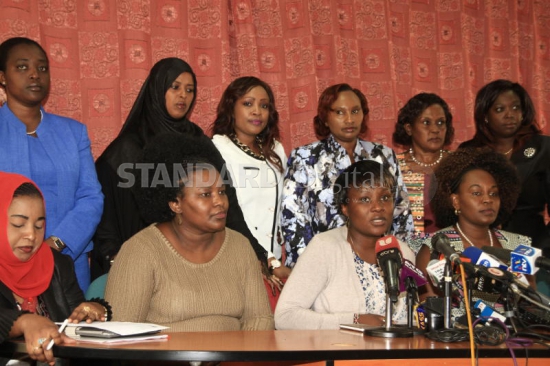×
The Standard e-Paper
Join Thousands Daily

Women fighting for political inclusion have come up with seven principles they insist must be met before they accept any proposal on the political headache that is the two-thirds gender rule.
The goal is to woo men to support the top-up formula to make sure that no more than two-thirds of the people in public bodies are from the same gender. They want a formula that will require “least-intrusive” amendment of the Constitution, and one which will address the concerns about the wage bill associated with a bloated Parliament.